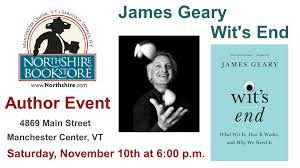
Be sincere, be brief, be seated.



Be sincere, be brief, be seated.


Fortuna stands some seven feet tall, on a pedestal overlooking seven Black automatons, in the San Francisco Museum of Modern Art’s Roberts Family Gallery. The mechanized figures in plots of obsidian perform a kind of ritual resurrection: One automaton, limbs flailing, repeatedly rises from and falls to the ground, summoned by another robot dressed in the robes of a prophet.
Fortuna takes it all in, periodically raising her arm and pointing to her mouth as an aphorism printed on a slip of paper pops out:
Your last shred of dignity is often your best.
Life is the abyss into which we deliberately and joyfully thrust ourselves.
Artists cannot be expected to follow instructions.
This diorama of suffering and redemption is Fortuna and the Immortality Garden (Machine) by Kara Walker, an artist whose cut-paper silhouettes and installations have long engaged with complex issues of race, racism, and identity, as does this work. Fortuna the machine is also a contemporary variation on the crude mechanical fortune tellers once found in penny arcades. Drop a coin into the slot at the amusement park, and Zoltar or Madame Zita would produce a card with a prediction of your future on it. Fortuna herself may be a wonder of modern animatronics, but dispensing cryptic wisdom goes back to the beginnings of the aphorism and is one of the oldest ways we make sense of our world.
Aphorisms are the original oracles. Walker’s Fortuna connects today’s museumgoers with the people thousands of years ago who played the I Ching or consulted Pythia, the priestess of the Temple of Apollo at Delphi, for insights on the future and guidance on the here and now. The aphorism is, in some ways, perfectly suited to the digital age: The oldest form of literature finds its ideal vehicle in the most modern short modes of communication. Connecting current expressions of the aphorism with its ancient roots is one reason I’ve prepared a new edition of The World in A Phrase: A Brief History of the Aphorism, twenty years after it first appeared.
New aphorists are featured throughout this second edition of The World in a Phrase — from a Roman orator and an Austrian countess to a Harlem Renaissance poet and a Colombian philosopher — encompassing more voices and bringing this brief history up to date. Twenty-six additional aphorists have been added to the original thirty-eight, for a total of sixty-four practitioners through which the history of the form is told.
When the book was first published in 2005, Facebook had only just been founded and Twitter didn’t exist. In the two decades since, the proliferation of social media — which places a premium on brevity, the aphorism’s essence — has created forums in which this shortest of short forms can thrive. Twitter, after all, has the word ‘wit’ in it. An entirely new chapter at the end of the book features those using new platforms to take the form into the future, including meme-makers, street artists, and visual aphorists who mix pithy language with compelling imagery.
Twitter, of course, also has the word ‘twit’ in it and, now known as X, it marks the spot where the unaphoristic reigns, from gauzy inspirational quotes to byte-sized chunks of outrage. This new edition addresses the crucial differences between aphorisms and hot takes and rage posts, and it explores why, especially as generative AI programs like ChatGPT threaten to reduce our cognitive loads to zero, it is essential to our psychological survival to think aphoristically. Aphorisms remain the ultimate deep dives, even in our era of fractured attention spans, when TL;DR has become the catchphrase of a generation.
Kara Walker’s work is part of the millennia-old tradition of the aphorism. Her aphorisms are proof of the enduring vitality of the form and its continuing popularity today. My hope is that this updated edition of The World in a Phrase will be timely and relevant for new readers as well as longtime aphorist aficionados.
Receiving the first copies of a book you have written is the oddest feeling… The object before you has lived in your mind for years, and you have spent many days working to place what is inside your mind outside your mind so others can see it.

The book is like a black box at first. What’s inside it? Did I write it? It seems like so long ago. And it was so long ago! Because the wheels of publishing turn slowly. But the grind — the writing, the promoting, the waiting — feels exceedingly fine (eventually).

Then it’s like meeting an old friend you haven’t seen in a long time. At first, you’re not quite sure it’s him — he’s changed a bit and so have you. But then you look again and yes, it’s him! I remember now. I wrote this. How wonderful to see you again!

Please come in. Make yourself at home. Stay awhile.

Have you met my daughter, Hendrikje? I think this is the beginning of a beautiful friendship.

Through a series of fortunate hyperlinks, I recently stumbled across aphorisms on journalism by John Bennet, former New Yorker editor and professor in magazine writing at Columbia Journalism School. In a brief 2022 obit on the Columbia j-school site, Betsy Morais, editor in chief of the Columbia Journalism Review, wrote that Bennet “often spoke in aphorisms.” Those aphorisms are funny, wise, and profane — just like the best newsrooms.
Put the best shit at the end, the second-best shit at the beginning, and all the other shit in between.
The best journalists always overreport.
Don’t rob the reader of feeling emotions by reacting for them (“I started to cry”).
A writer is a guy in the hospital wearing one of those gowns that’s open in the back. An editor is walking behind, making sure that nobody can see his ass.
Writer, teacher and translator Irving Weiss passed away on June 13. We have Irving to thank for bringing the aphorisms of Malcolm de Chazal into English.
Malcolm de Chazal (Geary’s Guide, pp. 359–361) was an aphorist and painter from Mauritius. I discovered the 1979 Sun edition of Chazal’s aphorisms, Sens-Plastique, by chance in a used bookstore in San Francisco in the mid-1980s. The cover has one of Chazal’s paintings on it — a pair of old shoes. Something spoke to me from the book, as sometimes happens when you encounter a book by someone you’ve never heard of in a used bookstore. I bought it and have been delighted and fascinated by Chazal ever since.
There are only three editions of Sens-Plastique in English, all of them the work of Irving. The latest and most comprehensive is from Green Integer, which also contains the introduction by W.H. Auden, a Chazal aficionado, which Irving arranged for the original 1971 publication of selections from Sens-Plastique.
Irving knew Auden from his college days in Michigan in the 1940s. He and his wife, Anne, lived on the Italian island of Ischia when Auden did. (They are featured in the BBC documentary about Auden, “Tell Me The Truth About Love”; Auden blessed their marriage by dedicating his and Chester Kallman’s translation of Die Zauberflöte to them.)
Irving found Sens-Plastique in the original French on Auden’s bookshelves. “Opening it at random, I was almost immediately struck by what I read, the lightning bolt transforming into, ‘This is what I wd write if I could, so I must translate it,’” Irving wrote to me in an email in 2008.
Irving translated a few pages and found Chazal’s address through Gallimard, his French publisher, and Chazal was delighted with Irving’s work. “We corresponded in French until one day years later he switched to perfect English,” Irving wrote to me, “and I remembered that he had attended Louisiana State University for six years studying agronomy.”
Irving corresponded with Chazal from the 1950s through the 1970s, though the two never met in person. He also published translations from Chazal’s Poèmes and Sens Magique, which are also aphoristic:
A rock needs no burial till it dies.
Eggs are all chin.
Irving told me that Chazal actually considered his Sens-Plastique observations science, not metaphor. That makes sense, given the uncanny precision of the aphorisms…
Light shining on water droplets spaced out along a bamboo stalk turns the whole structure into a flute.
Irving and I connected thanks to artist, author and critic Richard Kostelanetz, who mentioned my books to Irving. Irving did a search online, found this excerpt from a 2008 aphorism talk in which I discuss Chazal and read some of his aphorisms (and get the year of his death wrong; Chazal died in 1981), and then emailed me.
We had a lively email exchange — in extremely large type because of Irving’s failing eyesight! — and I was delighted to learn more about Irving’s relationship with Chazal and Auden and about Irving’s own works, including Reflections on Childhood, an anthology compiled and written with Anne, his wife. (I wrote about Reflections on Childhood here.)
Irving was funny, generous with his insights, and endlessly curious about aphoristics. I am fortunate to have known him, even if only electronically, and am forever grateful to him for introducing me to Chazal, one of the strangest and most original aphorists of all time…
Death is the bowel movement of the soul evacuating the body by intense pressure on the spiritual anus.
The sun is pure communism everywhere except in cities, where it’s private property.
The act of love is a toboggan in which those who are joined become each other’s vehicle.
Objects are the clasps on the pockets of space.
Age adds a pane of glass each year to the lantern of the eye.
Irving signed off all his emails with the phrase, “All to the Good.”
The Wit’s End World* Tour is winding down, but here’s a little visual retrospective of the places I’ve been and the people I’ve met. My thanks to all the booksellers, bookshops, festivals, and organizers of these events—and especially to everyone who turned out to talk about wit.
(* By ‘World’, of course I mean the United States of America…)
I’ll be adding new dates to the Events section of my homepage as they are booked. In the meantime, I’ll be taking a turn on stage here…
Sun Valley Writers’ Conference
July 17-21, 2020
Sun Valley, ID
Cancelled
Tattered Cover Book Store
February 21, 2020
Denver, CO
I was on BBC Radio 4’s Word of Mouth, hosted by Michael Rosen, on January 7, 2020, talking about metaphor… You can listen to the program here…

Wit’s End World* Tour 2018-2019
Powell’s City of Books
December 3, 2019
Portland, OR





House of Speakeasy: Seriously Entertaining
@ Joe’s Pub in the Public Theater
November 12, 21019
New York, NY






You can listen to my House of Speakeasy talk here.
You can read my Seriously Questioning Q&A here.
Wisconsin Book Festival
October 19th, 2019
Madison, WI

Iowa City Book Festival
October 3-5, 2019
Iowa City, IA



Harbor Springs Festival of the Book
September 27-28, 2019
Harbor Springs, MI



Decatur Book Festival
August 30-September 1, 2019
Decatur, GA



Read Laura Otis’s piece on the dangers of the “let it go” metaphor here.
Chautauqua Institution
July 31, 2019
Chautauqua, NY



Bookstock
July 26, 2019
Woodstock, VT


Printers Row Lit Fest
June 8, 2019
Chicago, IL

Porter Square Books
25 White St, Cambridge, Massachusetts
Jan 18, Friday – 7:00 – 8:30 PM
Politics and Prose
5015 Connecticut Ave NW, Washington DC
Jan 5, Saturday – 6:00 – 7:30 PM


Watch the video of my Politics and Prose gig here.
Brookline Booksmith
279 Harvard St, Brookline, Massachusetts
November 28, Wednesday – 7:00 – 8:30 PM

The Half King
505 W 23rd St, New York, NY
November 19, Monday – 7:00 – 8:30 PM
Spoonbill & Sugartown
99 Montrose Ave, Brooklyn, NY
November 18, Sunday – 7:00 – 9:00 PM
Head House Books
619 South 2nd St, Philadelphia, PA
November 16, Friday – 7:30 PM

Harvard Book Store
1256 Massachusetts Ave, Cambridge, MA
November 14, Wednesday – 7:00 – 8:30 PM

Northshire Bookstore
4869 Main St, Manchester, VT
November 10, Saturday – 6:00 – 7:30 PM

Concord Bookshop
65 Main St, Concord, MA
November 8, Thursday – 7:00 – 8:30 PM

Authors on Stage
Wellesley College Club
727 Washington Street, Wellesley, MA
November 07, Wednesday – 10:00 – 11:30 AM
Check out Wit’s End live at these summer (and early fall) book festivals…
Printers Row Lit Fest
June 8, 2019
Chicago, IL
Bookstock
July 26, 2019
Woodstock, VT
Chautauqua Institution
July 31, 2019
Chautauqua, NY
Decatur Book Festival
August 30-September 1, 2019
Decatur, GA
Harbor Springs Festival of the Book
September 27-29, 2019
Harbor Springs, MI
Iowa City Book Festival
October 1-7, 2019
Iowa City, IA
My new book—Wit’s End: What Wit Is, How It Works, and Why We Need It—is out on Nov. 13.
The book, of course, makes the perfect holiday gift for that special (please select one)
A) wit
B) nitwit
C) dimwit
D) half-wit
in your life. You can pre-order at Amazon, B&N or Indiebound.
But Wit’s End live is a lot of fun, too. If you want to discover how wit can entertain and enlighten even in the darkest times, come on by one of the appearances listed below.
I’ll explore key aspects of wit through film clips, folktales, literary anecdotes, jokes, and juggling—of ideas, words and balls. There will be word games, short creativity tests, and a pun competition, the winner of which receives a free copy of the book!
For a teaser of the event (and the book), check out this short video.
Thank you!
Authors on Stage
Wellesley College Club
727 Washington Street, Wellesley, MA
November 07, Wednesday – 10:00 – 11:30 AM
Concord Bookshop
65 Main St, Concord, MA
November 8, Thursday – 7:00 – 8:30 PM
Northshire Bookstore
4869 Main St, Manchester, VT
November 10, Saturday – 6:00 – 7:30 PM
Harvard Book Store
1256 Massachusetts Ave, Cambridge, MA
November 14, Wednesday – 7:00 – 8:30 PM
Head House Books
619 South 2nd St, Philadelphia, PA
November 16, Friday – 7:30 PM
Spoonbill & Sugartown
99 Montrose Ave, Brooklyn, NY
November 18, Sunday – 7:00 – 9:00 PM
The Half King
505 W 23rd St, New York, NY
November 19, Monday – 7:00 – 8:30 PM
Brookline Booksmith
279 Harvard St, Brookline, Massachusetts
November 28, Wednesday – 7:00 – 8:30 PM
Politics and Prose
5015 Connecticut Ave NW, Washington DC
Jan 5, Saturday – 6:00 – 7:30 PM
Porter Square Books
25 White St, Cambridge, Massachusetts
Jan 18, Friday – 7:00 – 8:30 PM
Attending a reading by Terrance Hayes at the Harvard Book Store the other day, I happened to sit next to Simon Constam. We happened to get to talking, and we happened to discover that we both write and read aphorisms. As Simon said, “the odds are astronomical against two people interested in aphorisms just happening to sit down beside each other.” So here, against the odds, is a selection of some of the aphorisms Simon subsequently shared with me, drawn from his manuscript-in-progress…
Exile is, like everything else, too much of a good thing.
Night after night all the things that do not change / Are startled by the changes that light brings.
Eventually you ignore the traffic, even the sirens, even the disturbances in the apartment next door. The classical guitarist cannot hear the squeaking of the strings.
Uncertainty disappears into habit.
Go and see what you don’t know is there.
Strength is the ability to forgive oneself for weakness.